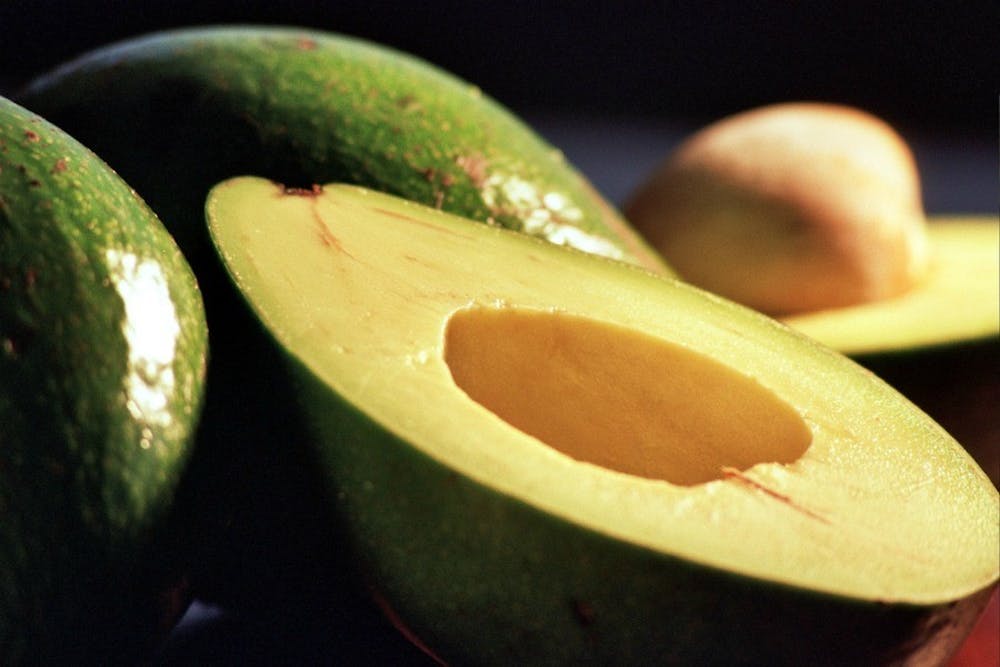By Hailey Mallendick, For The Miami Student
Organic foods are trendy and Miami University community members are jumping on the "chuck" wagon.
According to the Organic Consumers Association, nearly 40 percent of Americans plan to work more organic foods into their diets, while 63 percent are already occasionally buying some organic products.
The United States Department of Agriculture cites that "organic" applies to products produced through approved methods, such as the protection of biodiversity and natural resources as well as the utilization of approved substances like natural pesticides.
The guidelines to be a certified organic producer include obtaining a special license, not using synthetic pesticides or fertilizers and, in most cases, not genetically modifying organisms.
Taft Marsh, a sophomore botany major, has his own organic garden in which he grows a wide variety of produce.
"[Organic foods] are better for the environment most definitely," said Marsh. "Farmers are too reliant on chemicals like weed and pest control, before there is even a problem, and that is harmful on the ecosystem."
Marsh does manage a large organic garden; however, he is not a certified organic producer.
"You have to get a license to grow certified organic products," said Marsh.
But he still produces natural products without synthetic pesticides that he sells at the Oxford Farmer's Market.
Miami biology professor Alfredo Huerta said while organic farmers do not use the more harmful synthetic pesticides, they do use some natural pesticides.
"Their level of toxicity and mode of action is generally much more benign to the environment and to the people that consume those organic products," said Huerta.
Although he acknowledged the benefits of consuming organic foods, retired Miami history professor and managing partner of Oxford Coffee Company, Robert Thurston said in his experience, he has observed some misconceptions around organic products.
"A lot of people really aren't clear on what organic is and what organic means," said Thurston. "Organics are great, but there's a problem in how it's presented."
Producing food organically, he said, costs more money and is a lot more time intensive, meaning that certified organic products tend to come from bigger businesses now. On smaller organic farms, workers often have to work much longer hours and for lower pay than on non-organic farms to make up for the differences in cost and time.
Thurston also noted that, in some cases, growing produce organically comes with a higher risk of food carrying bacteria like E. coli.
A University of Minnesota study indicated that organically grown produce had 9.7 percent positive samples for the presence of E. coli bacteria versus 1.6 percent for conventional produce. Organic lettuce was the produce with the highest rate of contamination at 22 percent.
However, Thurston noted that buying organic for some foods is more beneficial than others.
Organic.org compiled a list of the 12 foods with the highest levels of pesticide residue called the "Dirty Dozen." According to this list, the 12 most contaminated foods are peaches, apples, sweet bell peppers, celery, nectarines, strawberries, cherries, pears, grapes, spinach, lettuce and potatoes.
"There are 47 different pesticides used on apples, 42 on strawberries and 52 on lettuce," said Huerta.
With such high levels of contamination on those foods, it is recommended that people eat organic. Among the 12 foods with the least amount of pesticide residue are avocadoes, bananas, onions, sweet corn and pineapple.
Senior Sam Sobecki usually does not buy organic products, primarily for financial reasons.
"I typically do not buy organic foods because I am a college student and am not willing to pay the higher price," said Sobecki.
There is an increase in the costs of organic foods due to the way they are grown, but, according to Huerta, it is not as expensive as most people think. On average, the prices for organic foods are about 10 percent higher than non-organic, he said.
"It is important to consider the long-term consequences of the effects of the food that you eat and your body and the negative effects of food production on the environment," Huerta said.

